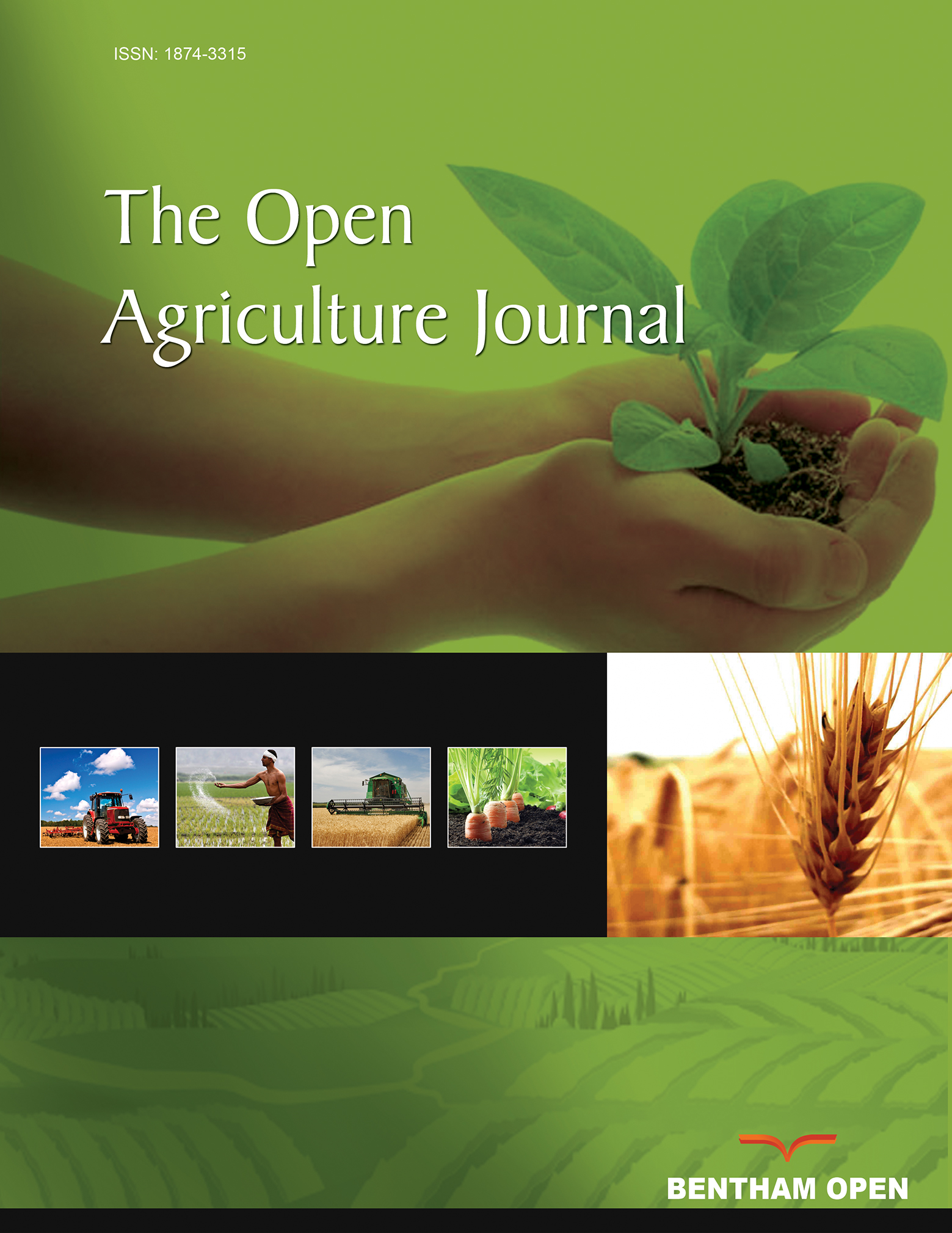All published articles of this journal are available on ScienceDirect.
Impacts of Microbial Inoculants on the Growth and Yield of Maize Plant
Abstract
Background:
The use of microbial inoculants holds a great promise to improve crop yield without the negative environmental and health hazard associated with chemical fertilizer.
Aim:
To investigate if Pseudomonas spp. (Pseudomonas kilonensis F113 and Pseudomonas protegens CHA0 strains) have promoting effects on vegetative growth and yield of different maize genotypes (viz. AFLATOXIN SYN 4W, TZB-SR, AFLATOXIN R SYN 2Y, AFLATOXIN SYN 3W and AFLATOXIN SYN-2Y) under different soil types.
Methods:
Both pot and field experiments were employed. Bacterialized seeds were sown (2 seeds/pot/stand).
Results:
Pot experiment showed that both the bacterial species significantly stimulated the growth of maize shoot length, stem girth, leaf length, root length and root weight. The effect of genotypes AFLATOXIN SYN 4W, TZB-SR, AFLATOXIN R SYN 2Y and AFLATOXIN SYN 3W are not significantly different from one another but AFLATOXIN SYN-2Y showed a significantly lower increase in the measured parameters. No significant difference was observed according to soil types. AFLATOXIN SYN 4W showed a significantly higher root weight while AFLATOXIN R SYN 2Y showed a significantly higher root length compared to the other maize genotypes. Moreover, Pseudomonas significantly increased maize growth and yield under field experiment. AFLATOXIN R SYN 2Y and AFLATOXIN SYN 4W showed a significantly higher yield than the other maize genotypes studied.
Conclusion:
We concluded that Pseudomonas kilogenensis F113 and Pseudomonas protegens CHA0 are potential biofertilizers.


